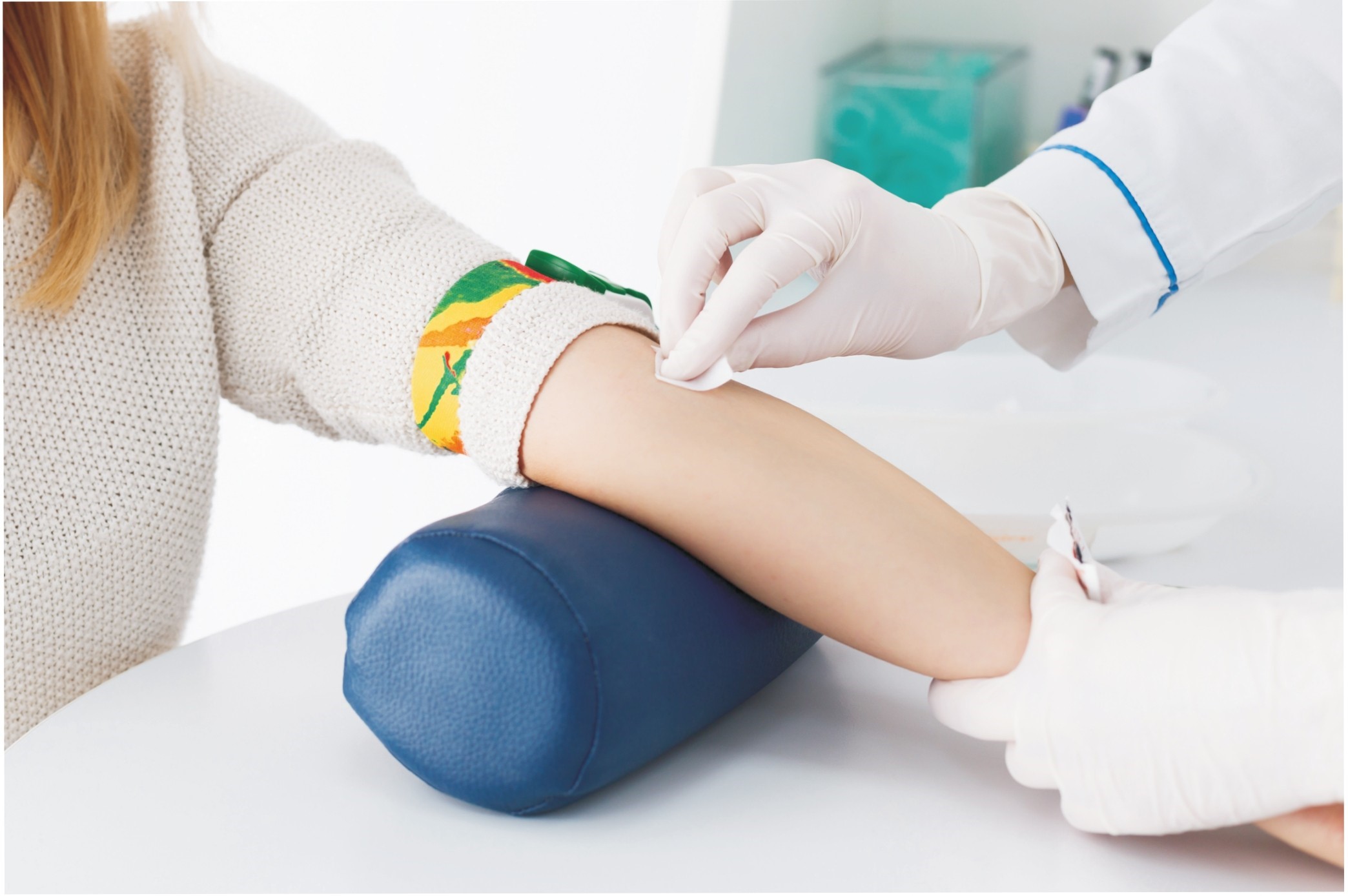Without my morning coffee I’m just like a dried-up piece of roast goat. – Johann Sebastian Bach
In 1732, Bach composed the “Coffee Cantata,” which celebrated the delights of coffee in the life of a young bride.
Did you know?
The word “caffeine” is from the German Kaffe (coffee). Caffeine was first discovered in 1819 by the collaborative efforts of German scientist Friedlieb Ferdinand Runge (1795-1867) and writer Johann Wolfgang von Goethe (1749-1832). In the
18th century, coffee was forbidden for women of childbearing age because of a fear it led to infertility.
- Dark roasted coffees actually have less caffeine than lighter roasts. The process of roasting burns off the caffeine.
- Women metabolise caffeine about 25 per cent faster than men. Asians metabolise caffeine more slowly than Caucasians.
- Caffeine is not just found in food and beverages but in various It is often added to analgesics (pain relievers) to provide faster and more effective relief from pain and headaches.
- Caffeine can interact with various medications. It can cause your body to break down a medication too quickly so that it loses its effectiveness. It can cause a dangerously fast heartbeat and high blood pressure if taken with other stimulant medications.
What is caffeine?
Caffeine stimulates (increases) the production of some chemicals in the brain called neurotransmitters. Caffeine is a short-acting stimulant. Neurotransmitters regulate several bodily functions mediated by the central nervous system. Caffeine promotes wakefulness, enhances physical performance and cognitive function in some individuals who consume it.
A 300-mg dose translates to roughly two double shots of espresso or 3 to 4 cups of brewed coffee, or two cans of some energy drinks. Small amounts of caffeine increase alertness and focus. But too much of it can cause side effects, from jitteriness and stomach issues to heart palpitations.
Caffeine occurs naturally in certain plants:
- Coffee beans
- Cacao beans (what chocolate is made from)
- Tea leaves
- Kola nuts
- Yerba mate
- Guarana berries
Sources of caffeine
Caffeine is naturally found in the fruit, leaves, and beans of coffee, cacao, and guarana plants. It is also added to beverages and supplements. There is a risk of drinking excess amounts of caffeinated beverages like soda and energy drinks because they are taken chilled and are easy to consume quickly in large quantities.
Coffee: 1 cup of brewed coffee contains about 95 mg caffeine. The same amount of instant coffee contains about 60 mg caffeine. Decaffeinated coffee contains about 4 mg of caffeine.
Espresso: 1 shot contains about 65 mg caffeine.
Tea: 1 cup of black tea contains about 47 mg caffeine. Green tea contains about 28 mg. Decaffeinated tea contains 2 mg, and herbal tea contains none.
Soda: A can of regular or diet dark cola contains about 40 mg caffeine. The same amount of Mountain Dew contains 55 mg caffeine.
Chocolate (cacao): 1 ounce of dark chocolate contains about 24 mg caffeine, whereas milk chocolate contains one- quarter of that amount.
Guarana: This is a seed from a South American plant that is processed as an extract in foods, energy drinks, and energy supplements. Guarana seeds contain about four times the amount of caffeine as that found in coffee beans. Some drinks containing extracts of these seeds can contain up to 125 mg caffeine per serving.
Energy drinks: 1 cup of an energy drink contains about 85 mg caffeine. However, the standard energy drink serving is 16 ounces, which doubles the caffeine to 170 mg. Energy shots are much more concentrated than the drinks; a small 2 ounce shot contains about 200 mg caffeine.
Supplements: Caffeine supplements contain about 200 mg per tablet, or the amount in 2 cups of brewed coffee.
Effects of caffeine
A low to moderate amount of caffeine –
37.5 to 400 milligrams (mg) per day can boost your mood, raise your energy levels, and improve your physical and mental performance.
Alertness
Adenosine is a neurotransmitter that promotes sleep and relaxation by slowing down nerve cell activity in the brain. As adenosine levels increase throughout the day, they bind to adenosine receptors, leading to feelings of drowsiness and a natural urge to sleep. This process is crucial for regulating sleep-wake cycles and maintaining overall brain health.
Caffeine mimics adenosine and binds to its receptors, effectively blocking its calming effect. As a result, nerve cell activity increases, leading to heightened alertness and wakefulness. This mechanism explains why caffeine is commonly consumed to combat fatigue and enhance focus. Even in people with partial sleep deprivation, 300 mg of caffeine has been found to significantly improve daytime alertness.
Mood
Blocking adenosine can cause an increase
in dopamine and norepinephrine activity which are associated with better mood.
Focus
Dopamine and norepinephrine are also associated with better focus and attention. Studies have explored how caffeine may help adults with attention- deficit/hyperactivity disorder (ADHD) improve their concentration and attention, especially when it comes to doing repetitive tasks.
Physical performance
Pre-workout powders contain caffeine in moderate doses as it’s shown to help improve athletic endurance.
Headache relief
Some pain relievers contain caffeine, which can speed up the rate at which your body absorbs the medication and help you feel better faster.
Some studies propose other health effects of caffeine, too. It continues to be studied for possible positive effects on inflammation, Type 2 Diabetes and the lining of the heart and blood vessels. Various studies have shown that coffee drinkers in particular have lower rates of cancer and chronic diseases than people who don’t drink coffee. Long-term caffeine consumption has also been associated with preventing or lowering the risk of:
- Alzheimer’s disease
- General cognitive decline
- Stroke
- Parkinson’s disease
Absorption and metabolism
The chemical name for the bitter white powder known as caffeine is 1,3,7 trimethylxanthine. Caffeine is absorbed within about 45 minutes after consuming, and peaks in the blood anywhere from 15 minutes to 2 hours. The duration of its effects is influenced by its biological half-life (meaning the time it takes for blood concentrations to drop by 50 per cent), as is true for any chemical substance in the body. The half-life of caffeine is roughly five hours, after which its bioactive effects start to wane.
So, if you drank a cup of coffee with 100 mg of caffeine, after three to five hours, you would still have 50 mg happily buzzing around in your system. It takes about 10 hours for majority of the remaining caffeine to be flushed out.
Caffeine, in beverages such as coffee, tea, and soda, is quickly absorbed in the gut and dissolves in both the body’s water and fat molecules. It is able to cross into the brain. Food or food components, such as fibers, in the gut can delay how quickly caffeine in the blood peaks. Therefore, drinking your morning coffee on an empty stomach might give you a quicker energy boost than if you drank it while eating breakfast.
Caffeine is broken down mainly in the liver. Smoking speeds up the breakdown of caffeine, whereas pregnancy and oral contraceptives can slow the breakdown.
During the third trimester of pregnancy, caffeine can remain in the body for up to 15 hours.
People often develop a “caffeine tolerance” when taken regularly, which can reduce its stimulant effects unless a higher amount is consumed.
Caffeine withdrawal occurs when someone who has been consuming caffeine regularly stops. When suddenly stopping all caffeine, withdrawal symptoms often follow such as irritability, headache, agitation, depressed mood, and fatigue. The symptoms are strongest within a few days after stopping caffeine, and they tend to fully subside after about one week. Tapering the amount gradually may help to reduce these effects.
Occasionally, people withdrawing from caffeine also experience flu-like symptoms, such as nausea as well as mood changes.
Caffeine and health
Caffeine is associated with several health conditions. People have different tolerances and responses to caffeine, partly due to genetic differences.
Risks and side effects of caffeine
Small amounts of caffeine increase alertness and focus. But too much of it can cause side effects, from jitteriness and stomach issues to heart palpitations and beyond. Consuming as little as 300 mg of caffeine (or roughly four cups of coffee) can increase your risk of unpleasant side effects like:
- Anxiety
- Digestive issues, like upset stomach or diarrhea
- Dizziness
- Heart palpitations
- Heartburn
- An increase in blood pressure
- Irritability and agitation
- Jitteriness
- Nausea
- Trouble sleeping
Health Considerations
Sleep
Caffeine intake later in the day close to bedtime can interfere with sleep quality. Although developing a caffeine tolerance by taking caffeine regularly over time may lower its disruptive effects, those who have trouble sleeping may consider minimizing caffeine intake later in the day and before going to bed.
Anxiety and mood swings
Caffeine can increase anxiety at doses of 400 mg or more a day (about 4 cups of brewed coffee). High amounts of caffeine may cause nervousness and speed up heart rate, symptoms that are also felt during an anxiety attack. Those who have an underlying anxiety or panic disorder are especially at risk of overstimulation when overloading on caffeine.
When you consume coffee, caffeine increases the release of dopamine and serotonin. These chemicals play critical roles in regulating mood.
However, the elevation of these neurotransmitters can have varying effects. Symptoms of caffeine- related mood changes can range from mild to severe. Common manifestations include irritability, anxiety, and difficulty concentrating. Some individuals may also experience mood swings,
fluctuating between feelings of optimism and negativity after consuming coffee.
These mood alterations are often accompanied by physical symptoms like jitteriness or increased heart rate. In more extreme cases, individuals who consume high amounts of caffeine may experience panic attacks or heightened anxiety levels. This is especially true for those who are already prone to anxiety disorders. It’s important for individuals to recognize their own reactions to caffeine, as these can significantly influence their overall mood and emotional well-being.
Heart disease
Caffeine stimulates the heart, increases blood flow, and increases blood pressure temporarily, particularly in people who do not usually consume caffeine. Cohort studies have not found that coffee drinking is associated with a higher risk of hypertension. Studies also do not show an association of caffeine intake and an increase in atrial fibrillation (abnormal irregular heartbeat), heart disease, or stroke.
Gastrointestinal problems
One primary way caffeine affects digestion is by altering gastrointestinal motility, or the movement of food through the digestive tract. Caffeine has been shown to stimulate peristalsis – the wave-like muscle contractions that push food through the intestines. This increased motility may lead to faster digestion but can also result in gastrointestinal discomfort for some individuals. This discomfort may manifest as diarrhea in sensitive individuals or those unaccustomed to high-caffeine diets.
Caffeine consumption can lead to an increase in gastric acid secretion. The increase in gastric acid secretion may exacerbate symptoms of heartburn and acid regurgitation especially for those predisposed to gastroesophageal reflux disease (GERD). Caffeinated beverages are often carbonated, which can further increase pressure on the lower esophageal sphincter, contributing to reflux. The acidity of caffeinated beverages like coffee can irritate the stomach lining for some individuals. This irritation may contribute to symptoms such as bloating, cramping, or even ulcers if consumption is excessive over time.
Caffeine also influences hormone levels that regulate digestion. For example, it can stimulate the release of cholecystokinin, a hormone that aids in digestion by promoting bile secretion from the gallbladder and stimulating pancreatic enzymes. These actions can enhance the breakdown of fats and proteins but may also lead to discomfort if there’s an overproduction of bile or enzymes.
Blood glucose level
Caffeine stimulates the release of a hormone called epinephrine, which causes liver and muscle tissue to release its stored glucose into the bloodstream, temporarily raising blood glucose levels. However, regular caffeine intake is not associated
with an increased risk of Type 2 Diabetes. In fact, cohort studies show that regular coffee intake is associated with a lower risk of Type 2 Diabetes, though the effect may be from the coffee plant compounds rather than caffeine itself, as decaffeinated coffee shows a similar protective effect. Other observational studies suggest that caffeine may protect and preserve the function of beta cells in the pancreas, which are responsible for secreting insulin.
People with Type 2 Diabetes react to caffeine differently. It can raise blood glucose and insulin levels for those with Diabetes. One study looked at people with Type 2 Diabetes who took a 250-milligram caffeine pill at breakfast and another at lunchtime – the same amount as drinking two cups of coffee with each meal. As a result, their blood glucose was 8 per cent higher than on days when they didn’t have caffeine. Their blood glucose levels also jumped by more after each meal.
Caffeine may lower your insulin sensitivity. That means your cells don’t respond to the hormone as much as they once did. They don’t absorb as much sugar from your blood after you eat or drink. This causes your body to make more insulin, so you have higher levels after meals. If you have Type 2 Diabetes, your body already doesn’t use insulin well. After meals, your blood
glucose rises higher than normal. Caffeine may make it tougher to bring it down to a normal level. This may lead to very high blood glucose levels.
Blood pressure level
Caffeine can cause a short-term increase in blood pressure by triggering the following chain of events:
- Increased neuron firing: The inhibition of adenosine increases the excitability of other neurotransmitters, leading to the increased firing of neurons (nerve cells) in the brain.
- Endocrine system activation: The pituitary gland reads the increased firing as a “distress signal” and instructs the adrenal glands to release a hormone called epinephrine (adrenaline).
- Epinephrine effects: Epinephrine, the hormone responsible for the body’s “fight-or-flight” response, causes rapid physiological changes to better deal with the perceived threat, including an increased heart rate and increased blood pressure.
Studies have shown that upon consuming caffeine blood pressure will start to rise within 30 minutes. Blood pressure increases will peak within one to two hours. Increases may persist for more than four hours or more, gradually normalizing as caffeine concentrations fall below bio-active levels. This is not to suggest that the time line is the same for everyone.
Some people can also develop a tolerance to caffeine and not experience a significant increase in blood pressure or any other associated effects. This is seen in individuals who regularly consume large amounts of caffeine. The effect of caffeine on blood pressure is largely based on how much caffeine has been consumed (the more caffeine you consume, the higher the increase may be). Among moderate caffeine users – defined as consuming less than 400 milligrams (mg) per day – the increase tends to be relatively small.
Studies published by the Food and Nutrition Board of the Institute of Medicine have shown that consuming 300 mg of caffeine:
- Increases the systolic (upper) blood pressure by an average of 7 mmHg.
- Increases the diastolic (lower) blood pressure by an average of 3
Addiction
Caffeine addiction is the excessive and harmful use of caffeine over a period, such that it has negative effects on your health, social interactions, or other areas of your life. Daily consumption can quickly lead to a caffeine addiction, characterized by cravings and withdrawal symptoms if intake is reduced or ceased. Addiction also leads to consuming caffeine in amounts that are potentially dangerous to your health despite knowing that it may harm you mentally or physically.
Cognitive function
Cortisol is a steroid hormone produced by the adrenal glands. It plays a vital role in regulation of metabolism, response to stress aiding in the body’s ‘fight or flight’ response, inflammation control and maintenance of blood glucose levels.
In the short term, caffeine intake can cause a spike in cortisol levels. This response is particularly pronounced in individuals who consume coffee in the morning or during stressful situations. When caffeine is ingested, it can trigger the adrenal glands to release more cortisol. This is part of the body’s natural response to perceived stress. As cortisol levels increase, individuals often experience heightened alertness, improved cognitive function, and enhanced physical performance. Research indicates that cortisol levels could rise by approximately 30 to 50 per cent after caffeinated coffee consumption, particularly in regular drinkers.
Caffeine and your liver
Your liver plays a key role in your overall health. With hundreds of different functions, your liver cleans toxins out of your blood, makes bile to help your body break down carbohydrates and fats for your body to use.
Coffee contains antioxidants and other compounds that all play a role in decreasing liver inflammation. For example, the antioxidant known as chlorogenic acid prevents the buildup of fat in your liver by breaking down glucose. Coffee triggers a process known as autophagy, in which damaged cells are removed. This helps keep your liver functioning properly. Coffee acts as an inhibitor of adenosine receptors, which are linked to liver injury, regeneration and fibrosis; thereby, coffee may decrease the progression of fibrosis/scarring in the liver.
Coffee appears to protect people who already have liver problems. There’s evidence that coffee is beneficial for people with hepatitis C, a virus that infects the liver and can lead to cirrhosis and liver cancer by inhibiting the inflammation associated with it. But coffee doesn’t have a direct effect of curing the virus and it’s unclear if it directly prevents liver cancer.
Metabolic dysfunction-associated steatotic liver disease (MASLD), formerly known as nonalcoholic fatty liver disease, occurs when extra fat builds up in liver cells. It affects people who carry excess weight or have Type 2 Diabetes in particular. Over time, it can cause cirrhosis or scarring of the liver. But research shows that people who drink at least three to four cups of coffee daily have a lower risk of developing MASLD, mainly via improving insulin resistance. In people who already have MASLD, regular coffee drinking lowers the odds of developing cirrhosis. And among people who have cirrhosis, those who drink more coffee are less likely to die from the disease.
Ideally, black coffee is recommended. If you just can’t stomach it black, swap sugar for artificial sweeteners. Add skimmed milk or plant-based milk instead of cream. As people with MASLD often have problems like Type 2 Diabetes and obesity, it’s especially important not to add extra fat and sugar to your coffee.
A recent recommendation by the American
Association for the Study of Liver Disease suggests that either caffeinated or decaf coffee can be consumed to receive liver benefits.
Note: It is best to consult your doctor to understand what would be best suited based on your health parameters.
Caffeine during pregnancy and lactation
Caffeine crosses the placenta and will have effects on fetal development, eventually causing delayed closure of the neural tube and other types of developmental problems in animal research. Pregnancy complications include spontaneous abortion and fetal distress in cases of high caffeine consumption. Epidemiological research has associated consumption of caffeine during pregnancy with both low birth weight and intrauterine growth retardation (IUGR). Even moderate daily consumption of caffeine (100-200 mg) has been shown to increase risks of miscarriage and fetal growth restriction.
Caffeine use has also been linked to a greater risk of spontaneous abortion. Caffeine intake while pregnant can modify maternal endocrine reactions and influence fetal brain development, which might result in developmental problems in the long term.
RDA
The U.S. Food and Drug Administration considers 400 milligrams (about 4 cups brewed coffee) a safe amount of caffeine for healthy adults to consume daily.
However, pregnant women should limit their caffeine intake to below 100 mg a day (about 2 cups brewed coffee), according to the American College of Obstetricians and Gynecologists.
The American Academy of Pediatrics suggests that children under age 12 should not consume any food or beverages with caffeine. For adolescents 12 and older, caffeine intake should be limited to no more than 100 mg daily. This is the amount in two or three cans of cola soda.
Caffeine toxicity
Consuming too much can lead to caffeine overdose, a serious condition that brings more severe neurological (brain) and cardiac (heart) effects. It can cause arrhythmias (heart rhythm disturbances), seizures and even death.
Caffeine toxicity has been observed with intakes of 1.2 grams or more in one dose. Consuming 10-14 g at one time is believed to be fatal. 10 g of caffeine is equal to about 100 cups of brewed coffee.
Caffeine intake up to 10 g has caused convulsions and vomiting, but recovery is possible in about 6 hours. Side effects at lower doses of 1 g (1000 mg) include restlessness, irritability, nervousness, vomiting, rapid heart rate, and tremors. Dangerous blood levels are more often seen with overuse of caffeine pills or tablets.
Nutrition labels
FSSAI (Food Safety and Standards Authority of India) has established regulations for adding caffeine to food supplements. The maximum permissible limit of caffeine in food supplements is 300 mg per day, which should not be exceeded.
FSSAI has also established guidelines for labelling and packaging food supplements containing caffeine. The label must clearly state that the product contains caffeine, and any health claims or statements must be backed by scientific evidence. The packaging should also be tamper-proof and must include information on how to use the product safely.
Humanity runs on caffeine
In the 21st century, almost every adult consumes caffeine in one form or another. With increasing interest in the role of coffee in health, general knowledge of population consumption patterns and within the context of the full diet is important for both research and public health. As in all things, caffeine consumption in moderation can prove beneficial. This article highlights caffeine’s complex role in health, emphasizing the need for balanced consumption. Too much of caffeine, like all things, hampers health and well-being.














